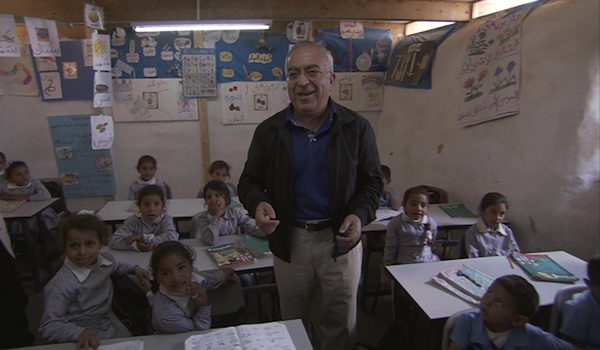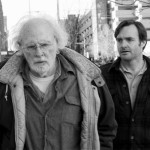State 194 Review

An almost impossibly hopeful film, Dan Setton’s State 194 dissects the current state of the Israel-Palestine conflict with thoroughness and care. And while those versed in the intricacies of this seemingly intractable feud will find the most food for thought, there’s more than enough history and context for those looking to learn something.
The film’s focus is Palestinian Prime Minister Salam Fayyad—a moderate, reasonable man who’s dedicated to finding a two-state solution. Though his Israeli counterpart, Benjamin Netanyahu, seems decidedly uninterested in conceding an inch of land in favor of peace, Fayyad forges ahead with a plan he calls “Palestine — Ending the Occupation, Establishing the State”. It calls for big investments in infrastructure, education, an independent police force, etc.—the idea being that if Palestine looks more like a state, the United Nations will be more likely to formally recognize it as such.
Fayyad, through the eye of Setton’s camera, loves what he’s doing. He’s a people person. We see a lot of him traveling through the West Bank and Gaza spreading the word of what he’s trying to do. He doesn’t see the two parties as that far off. If you remove the “settlement question” (more on that later), the borders are defined. He thinks the world is ready. It’s merely a matter of bringing the more extreme groups on either side to the table to realize concessions are better than endless violence.
The settlements, if you haven’t kept up with world affairs much, are Israeli housing communities that are being built on territory Israel claimed back in 1967 but was ultimately ceded back to the Palestinian Authority. They are unquestionably the biggest obstacle facing pacifists and peace-minded politicians in more than a decade. The film gives the issue a lot of time, and we hear from those involved on every level—from the Israelis who live in settlements and will defend them with their lives, from Palestinians being evicted from their homes because Israeli law doesn’t treat them equally, and from Fayyad and other men and women like him who are tired of this problem standing in their way.
The film itself is competently made and most noteworthy for the hopeful tone that’s struck early and never quite goes away. It’s Fayyad that brings the hope, and even when he feels pressure to resign, he forges on.
Now, just weeks before the release of State 194, Fayyad has resigned as Prime Minister of the Palestinian National Authority, adding a layer of complexity to the film’s thesis. Fayyad and his intellectual brethren, I’m sure, would argue that the principles of peace he’s outlined during his time in office are bigger than one man. And though they’re commonly referred to as “Fayyadism,” he’s likely right. As with any great social, economic, or political struggle, you have to take baby steps. And it’s hard not to applaud State 194 for both embracing that philosophy and attempting to speed the process along, even if it’s just a bit, by educating in an incredibly smart and level-headed way.












